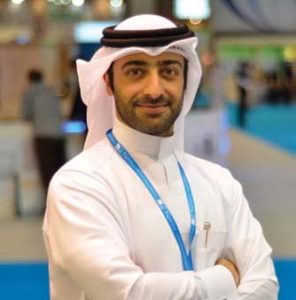
In a press release from the Telecommunications Regulatory Authority (TRA) issued in August 2012, was the figure 27,600 – the number of unauthorised devices that included satellite phones and terminals that were confiscated over a series of raids across the UAE.
This unique space service does pose challenges. For instance in aviation and maritime, the terminals are largely built in and it would be impossible to restrict entry to the ships or planes. For a regulator, these areas pose a challenge
In a country that has a mobile penetration of 156% and nearly 100% of territory covered by mobile networks, the sheer number of mobile satellite services (MSS) equipment that was unearthed during the raid, would have been surprising to a casual onlooker.
As Drew Brandy, Inmarsat’s director, land mobile business, puts it aptly: “The UAE is not a big market in terms of revenue generation but is a critical market in terms of point-of-sale. A lot of our partners are based here so it is important that we not only have a presence here but are legally compliant.”
Proactive approach by authorities
The raids by the TRA were preceded by a warning letter that stated that it was unlawful to sell any unauthorised products.
That the TRA would back their written warning with action came as a surprise to many in the industry and underlined the seriousness of official intent.
“One of our big concerns is the security of the UAE and we have to ensure this will not be breached with unregulated acts in the market,” affirms Khalid Al Awadhi, manager space services at the TRA in conversation with SatellitePro ME.
As the situation stands, Iridium and Inmarsat phones and terminals cannot be sold in the UAE pending compliance with TRA’s licensing and type approval requirements.
Negotiations between TRA and operators
So did the raids catch the MSS industry off guard, I asked Drew Brandy of Inmarsat.

“Yes and no. We have been working with the TRA for some time now and we recognise that the service needs to be regulated and we need to be compliant. A lot of our partners are based here and the UAE is a critical hub for distribution to places in North Africa, among other regions. There are numerous discussions on what needs to be put in place.
The UAE is not a big market in terms of revenue generation but is a critical market in terms of point-of-sale
“Basically it revolves around how we will bring the products in the market, the visibility of those products and how it will be distributed. It is a difficult situation and quite a protracted process, but I am quite pleased to report that we have made progress.”
With Inmarsat’s chairman Andrew Sukawaty reportedly meeting with TRA officials in the weeks leading to the ITU Summit during Gitex in Dubai, the discussions have apparently taken place at the highest level. This was followed by a meeting of service providers and Inmarsat where Drew Brandy reportedly assured the service partners that a solution is close at hand.
To understand the issues, we stopped by the office of Jassem Hassan Salman Nasser, vice president of strategy and business development, Thuraya. A telecommunications professional, Nasser has been with the UAE’s mobile satellite services provider – Thuraya – since 1998. And he has been closely involved with the licensing activities since 1999 even before Thuraya had launched its first satellite.
“Since the early days, we pursued licensing in different countries and we continue to do so. We started with the top countries in our target areas and depending on local regulations, we secured licences either in our name or our local partners secured the same. Over the course of 12 years, we have developed processes and tools to meet and comply with regulatory requirements in different countries and, in some countries, we helped in drafting the regulations because the concept of MSS regulations was new.

“Regulations are driven by a number of factors including the economy, the geography, culture and so on. These factors determine whether the approach to regulations will be more liberal or conservative.”
Since one of the roles of MSS is disaster relief operations or to provide critical support to sectors such as maritime and oil and gas, it is important to support the industry and not impose high regulation fees or restrictive controls
On the issue of TRA vis-a-vis MSS regulations, the process began four years ago, according to Nasser of Thuraya.
“The licensing regime came into effect in 2008 and we applied for type approval and registration of all our terminals and whenever we have terminals coming in they are type approved by the TRA.”
Security concerns underlying enforcement
On the current issue with regard to mobile satellite terminals, Nasser believes there is a general misunderstanding of rules among the service providers who sell to the end-users directly.

“Some service providers believe that just bringing the terminals in to the country and selling them to users outside the country should be alright, which is not the case. This involves trans-border movement of terminals and one can use the UAE as a distribution hub only if the terminals are compliant with local regulations. This applies to any telecom equipment, not just satellite equipment.”
The operators, dealers and end users must understand that our primary concern is the security of the country and we cannot allow that to be breached by unregulated sale of telecom equipment
In charge of regulating the market, both Khalid Al Awadhi and his boss Tariq Al Awadhi who is the executive director, spectrum affairs, reiterate that the process of licensing of operators, type approval of equipment and registration of dealers is straightforward.
Most importantly, there should be no ambiguity, Tariq Al Awadhi says, about TRA’s primary concern – the security of the UAE.
“The operators, dealers and end users must understand that our primary concern is the security of the country and we cannot allow that to be breached by unregulated sale of telecom equipment. Even the act of selling in the UAE to persons who may use it outside the UAE, is not lawful without a licence.”
The region, not just the UAE, is clearly in transition, with regulations only beginning to catch up with the esoteric world of mobile satellite services. The Arab spring and general political turmoil across the region has probably accelerated an otherwise passive approach to enforcing the rules. Inmarsat’s licensing department faces similar issues in countries such as Oman and Saudi Arabia. Both Inmarsat and Thuraya claim that they are compliant in more than 80% to 90% of the countries they cover, underscoring the ongoing challenges regulatory regimes pose to MSS operators.
Critical to support niche MSS sector
Nasser of Thuraya says it is important for regulators to encourage the MSS sector. “In Europe, which is a mature region for MSS, authorities have largely understood that it is a niche market. And since one of the roles of MSS is disaster relief operations or to provide critical support to sectors such as maritime and oil and gas, it is important to support the industry and not impose high regulation fees or restrictive controls. In these mature markets, they allow for free circulation of terminals, exemption from individual licensing and they only look at critical aspects of frequency usage and interference issues that need to be regulated.”
Critics have said that countries in the region have exorbitant rates in terms of licensing fees. Their argument is that in a country with a mobile penetration of 156% and where MSS is used only for specific verticals and as backup for disaster relief, the high licensing fees is not justified. Whereas a large country with less mobile penetration and a bigger addressable MSS market, such as Algeria, has lower licensing fees.
Who is regulating the regulator, they ask. Khalid Al Awadhi refutes the charge that licensing fees are disproportionately high.
“If our licensing fee was high, you would not find a lot of motivation for operators to provide services in the UAE. We are doing a lot of benchmarking in terms of determining the fees and charges. While we take into account other markets, we take into consideration the nature of the industry in the UAE. As a regulator we do not look at the demand for the products.
“We have other concerns such as – for instance – the nature of competition among service providers. If the competition levels are high, we raise the ceiling of entry given that our resources are limited. We also study the global nature of the service and take into the account the costs and difficulties the operator has to bear.”
He concedes that it is a work in progress given the many challenges posed by MSS for regulators.
“Since the establishment of the TRA, there has been a big improvement in terms of regulations in satellite services, among other areas, where previously you did not have the best regulation possible.
“MSS is a specific space service and given that the UAE hosts one of the global operators, namely Thuraya, we have made concerted attempts to ensure a regulatory framework. This unique space service does pose challenges.
“For instance in aviation and maritime, the terminals are largely built in and it would be impossible to restrict entry to the ships or planes. For a regulator, these areas pose a challenge. The good news is that we are reaching the final stages in terms of addressing these pending issues.”
[boxposthighlight]A statement from Thuraya on reports that their devices are traceable in Syria
“In the past there have been false reports circulating in Syria of the tracing of Thuraya satellite callers, or cracking encryption and other unsubstantiated allegations. It is true that satellite telephony is based on terrestrial GSM standards, and like any technology, has its security characteristics and its limitations, including risks of tracing and hacking.
“At early stages, Thuraya reconfigured the network such that to ensure users can access the service in a way that we believe will render tracing extremely difficult. We believe that our network is the only one that has the capability to offer such feature to ensure the security of user location.
“We are committed to ensuring the safety of journalists and relief workers operating in Syria using our network.”
[/boxposthighlight][boxposthighlight]
The Telecommunications Regulatory Authority in the UAE confiscates over 27,600 unauthorised devices as part of its extensive regulatory campaigns.
Based on the TRA’s policy which aims at protecting the telecommunications market in the UAE from the use of unsupported telecommunication devices which are non-compliant with the specifications, the TRA has carried out, what is reportedly, the widest and largest campaign of seizures resulting in the confiscation of over 27,600 devices and handing them to the Economic Department in Dubai.
In the past two years, the TRA has reportedly taken action to prevent the spread and use of unauthorised devices through the adoption of standard and international specifications for the registration of local and international manufacturers, licensed operators, and companies importing telecommunications devices. This is in addition to issuing warnings or imposing fines that may reach in some cases to licence suspension.
[/boxposthighlight]














Add Comment